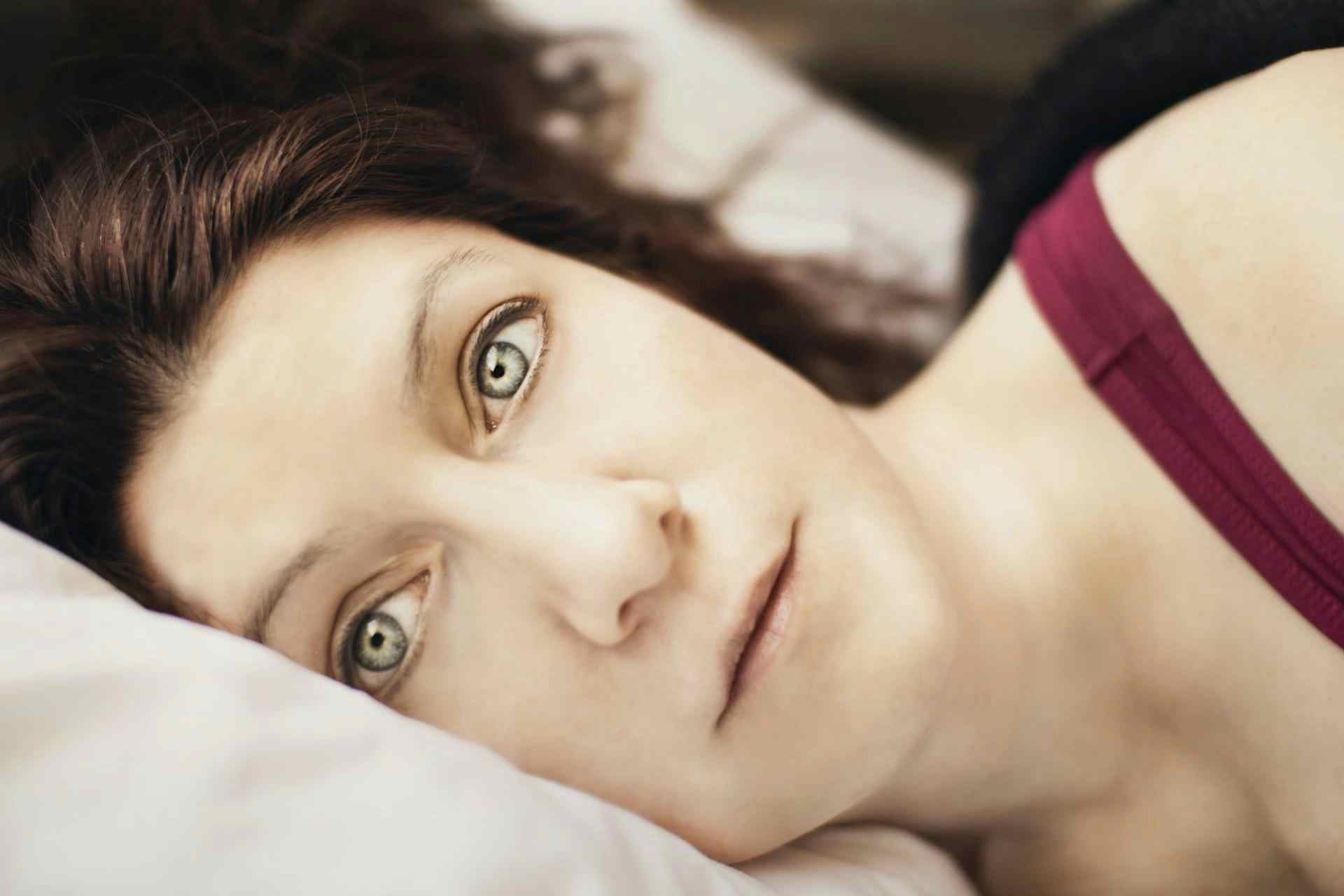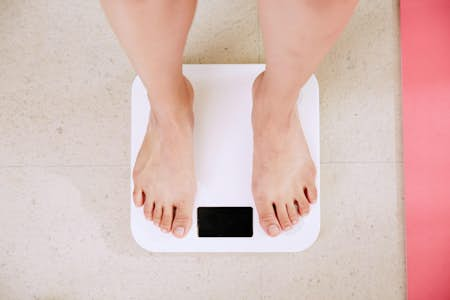According to Formulate Health, 36% of UK adults struggle to sleep at least once a week, and nearly 50% have trouble falling asleep at least once a month.
People aged 45-54 struggle the most with sleep problems; two-thirds of this age group find it hard to get to sleep at least once a month.
What is insomnia?
Insomnia is a sleep disorder in which people have trouble getting to sleep or staying asleep. Also known as sleeplessness, insomnia can last for a few days or weeks (short-term insomnia) or more than a month (chronic insomnia).
Insomnia isn't just about trouble getting to sleep: it also includes sleep quality, waking up during the night and a whole range of sleep difficulties.
The benefits of sleep are numerous, and we need sleep to power our brains and recover our bodies. We all need enough sleep to function mentally, and our bodies need sleep to repair, recover and prepare for the following day ahead.
From learning new skills to repairing muscle tissue after a workout, our mood and physical health during the day is directly related to the amount of sleep we've had at night. Insomnia is the main reason people miss out on this crucial aspect of life.
What causes insomnia?
Many people are simply predisposed to sleeping difficulties. This means that while our spouses may sleep soundly through the loud party across the street, we can't get to sleep, however much we might try.
Unfortunately, this means that some adults have a lower threshold for experiencing sleep problems, and others have a higher one.
Many provoking factors in our daily lives can lead to short-term insomnia. These include noise, shift work, chronic pain and jet lag from moving from one time zone to another. One of the most common causes of insomnia is stress. If something is on our mind, we are bound to be losing sleep over it.
Stimulants also cause insomnia, and these appear in lots of food and drinks like chocolate and caffeine, as well as common medication, including antidepressants and over-the-counter multivitamins.
Stimulants can lead to poor sleep efficiency, shorter sleep duration, and trouble falling asleep in the first place.
Insomnia can also be affected by changes as we grow older. As we reach new and exciting stages in our life, our sleep often suffers for it. For example, almost 40% of women will experience sleep problems in their 40s and 50s as they experience hormonal changes and reach menopause.
Learn more about menopause and diet.
There is a big difference between insomnia affected by underlying health conditions like Parkinson's disease (known as secondary insomnia) and insomnia caused by external or psychological issues, such as noise or stress (primary insomnia).
The distinction between these two causes of insomnia is important, as secondary insomnia should be checked out by a GP to rule out any dangerous healthcare issues. In contrast, primary insomnia is most likely caused by an identifiable external factor.
Insomnia and mental health
Insomnia and mental health are intrinsically linked. Those who struggle to get enough sleep are at a greater risk of developing mental health disorders such as depression or anxiety disorders.
There is a lot of science behind why we need a good amount of sleep to function mentally during the day and why bouts of insomnia can negatively affect our emotional health.
When we fall asleep, our body is busy working. Our brain activity increases and decreases as we sleep to make up various "stages" of our sleep cycle. One of the most critical stages of sleep is REM sleep, which is when brain activity increases.
Each stage of brain activity is essential in maintaining brain health, and getting enough sleep allows the brain to understand and process emotions. Therefore, a lack of sleep is detrimental to our emotional health and can lead to poor mood and experiencing suicidal thoughts.
According to the Sleep Foundation, 75% of people who suffer from depression also show symptoms of insomnia. While it was first thought that sleeping issues were a product of depressive thoughts, it is increasingly believed sleep problems can cause depression.
Mental health practices such as calming breathing or meditation can have a tremendous impact on those who suffer from sleep disorders. Many people find that practising mindfulness gives them a sense of calm before heading to bed, reducing anxiety levels and encouraging a healthy and restful night's sleep.
Some also find it helpful to speak to their GP about cognitive behavioral therapy (CBT), which has proven benefits for sleep.
The signs and symptoms of insomnia
There are many signs of insomnia. For example, during the night, someone might find it hard to go to sleep, wake up during the night or early in the morning and not be able to fall back asleep.
In the daytime, people who suffer from a lack of sleep often experience tiredness, irritability, and difficulty concentrating. A common sign that someone is struggling with insomnia is if they cannot get through the day without needing to nap. A good night of restful sleep should set us up for a day of activity.
Like the causes of insomnia, the signs of sleep disorders are specific to individuals. For example, someone struggling from psychological causes of insomnia may experience acid reflux during the day if they are not getting enough sleep. The symptoms of insomnia can range from mood swings to intense drowsiness.
For many older adults, signs of insomnia might show themselves mentally, such as through a lack of mental focus during the day.
Sleep improves our brain function, particularly the much-needed REM sleep that is difficult for insomniacs to achieve. Everything from decision-making skills to reactivity are linked to strong brain function, and there is a much-proven link between mental clarity and the amount of sleep we've managed to get during the night.
There's a reason we say "sleep on it" when there's a problem that needs solving!
Some of the more dangerous side effects of insomnia are reaction problems, such as an increase in errors and accidents. For example, those who do not achieve good enough sleep quality find that they cannot concentrate while driving and experience drowsiness when trying to focus on simple tasks.
The NHS has a helpful tool to test if you are currently struggling with insomnia.
Risk factors of insomnia and sleep disorders
Certain risk factors can make insomnia more likely, including specific behaviours and underlying health conditions.
Advanced age is a significant risk factor for insomnia, particularly for those over 60. Unlike younger people who experience insomnia, older adults don't find it hard to get to sleep. But once asleep, they often wake up multiple times during the night, leading to poor sleep.
There are also various medical conditions, health problems and underlying causes that can increase a person's risk of developing insomnia throughout their life.
These conditions include arthritis, high blood pressure, kidney disease, Alzheimer's disease and cancer.
Thyroid disorders have a unique link to sleep quality, as thyroid problems can also increase your risk of developing sleep apnoea and insomnia. This is because thyroid issues can affect the circadian rhythm.
Insomnia is also affected by lifestyle behaviours. For example, those with erratic night-time routines have an increased risk of sleep disorders. There is also a proven link between obesity and trouble sleeping, with people who are obese more likely to report trouble sleeping than those who are not.
In fact, even with a healthy amount of sleep, those who struggle with obesity are more likely to suffer from fatigue and sleepiness throughout the day.
The dos and don'ts of insomnia
Struggling with insomnia isn't pleasant, and it can lead to problems later down the line. However, there are a few ways to get on top of insomnia before it becomes a chronic issue. It is all about considering our sleeping habits and night-time routine.
There are a few dos and don'ts that we can use to improve our sleep and get to a place where we no longer struggle to get to sleep at night.
Do:
- Create a sleep diary or a sleep schedule to make sure there is an effective bedtime routine in place to ward off insomnia
- Make lifestyle changes, such as reducing alcohol
- Exercise during the day and lead an active lifestyle
- Create a comfortable sleep environment
Don't:
- Get into bad sleep habits such as napping during the day or sleeping in after a lousy night's sleep
- Use sleeping pills without the "okay" of your doctor
- Eat right before bed, especially a heavy meal
- Use your phone just before you go to sleep
There is much we can do to understand what is causing insomnia and what we can do to improve our sleep hygiene and bedtime routine to make sure we're always getting a good amount of sleep.
According to the American National Heart, Lung and Blood Institute (NIH), 1 in 3 adults do not regularly get the recommended amount of sleep they need to protect their health. What we do in the day can also significantly impact how we sleep at night.
A healthcare professional or doctor can also help tackle insomnia, conduct a sleep study or sleep history report to understand the root cause of sleep problems, and prescribe the right treatment or solution to get a restful night's sleep every night.
We spoke to Sarah Patel from Teach to Sleep, who told Health Times: "Getting lots of fresh air and natural light can help to regulate the circadian rhythm which in turn helps your body to prepare for sleep at night by producing the sleep hormone melatonin during darkness.
"Exercise can have a huge impact on sleep, most people find exercising in the morning or early afternoon has a positive impact on sleep onset (the time it takes to fall asleep). However, exercising too close to bedtime can be stimulating and mean that falling asleep is harder and takes longer."
Getting to grips with insomnia
For those who struggle with insomnia, it is all about trying different sleeping habits until something helps. It might be a case of waiting for stressful periods to pass or accepting that hormonal changes are a part of life.
Many people suggest using supplements such as magnesium or valerian, and others are helped by calm breathing, CBT and other mental health practices.
Insomnia is not just about getting to sleep. For many older adults, it's about staying asleep and maintaining that golden REM sleep where our brain and body are working hard to make sure we are at full mental and physical capacity when we wake up in the morning.
Whatever the solution, understanding the root causes, symptoms and do's and don'ts of short-term or chronic insomnia is one of the most important ways to deal with it, and find a solution for nipping sleepless nights in the bud.









